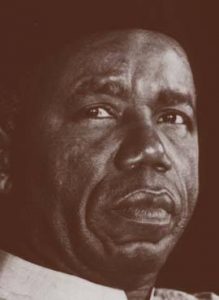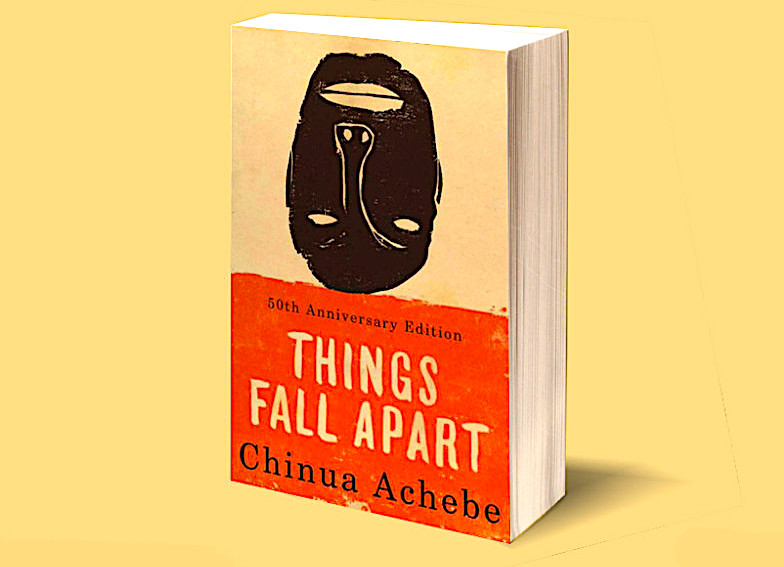4,229 Total views, 3 Views today
Bakhtiar Rasheed
Part one

Colonization created the chance for Europeans to encounter and create their own “Other”. Due to the colonization process, indigenous peoples across Africa were subjected to the laws and customs of the European colonizers. Consequently, Europeans made pre-conceptions about themselves and non-Europeans. Their assumptions were based on comparing themselves (colonizers) to the “Other” (colonized). Colonizers showed themselves as civilized, and the indigenous peoples as savages that need to be civilized. Furthermore, the colonizers believed that, that European cultures were more evolved than the primitive cultures of the aboriginals; hence Europeans are superior in relation to the other races. For that, in the name of disseminating European’s enlightenment among uncivilized nations, European colonizers started their expansions over the non-European peoples.
These colonial ideas are called “colonial ideology” or more often called “colonial discourse” (Tyson, P. 419-20). However, after the Second World War, aboriginal intellectuals started to reflect on their own history and culture. They showed it to their people and told them that there is nothing in their history to be ashamed of (Fanon, 119-20). In the meantime, these arguments were also used to refute the colonizers’ claims of bringing civilization to the indigenous people. Often, these efforts are called “post-colonial counter discourse”. (Tiffin, P. 99)
Colonial ideology did not reflect only in European’s politicians’ and traders’ attitude toward the colonized people, but in every aspect of society, including literature and canonical texts. Edward Said in his seminal book Culture and Imperialism points to this aspect of British society in the colonial era. Said investigates why that culture tolerated colonialism, with all its atrocities. He sheds light on those texts, that have been written in colonial times that have a positive outlook toward colonial attitudes and behaviours on the part of Europeans.

Above all, there was no strong anti-colonialism movement inside the British Isles until the appearance of the nationalist movement within the colonized countries (P. 96-7). This point shows the relationship which existed between European cultures and colonial ideology, a culture that legitimized and tolerated colonialism. Therefore, it should not come as a surprise if we come across texts like Joseph Conrad’s The Heart of Darkness (first published in 1902) and Joyce Cary’s Mister Johnson, (published in 1939) which depict Africa as a horrific place that is inhabited by “prehistoric” and “savage” men who look “nothing earthly” (Conrad, P. 51, 52). Jan Mohamed (1985) in his definition of colonialist literature cited by Diniz (2002) says: “Colonialist literature is an exploration and a representation of a world at the boundaries of ‘civilization’, a world that has not yet been domesticated…That world is therefore perceived as uncontrolled, chaotic, unattainable and ultimately evil” (Diniz, P. 126). This literature was part of colonial ideology by justifying colonization process either by demonizing the colonized peoples or marginalizing them. Chinua Achebe’s Things Fall Apart (1958) was preceded by numerous texts like the above mentioned texts; Achebe’s text tells a story from a different stand point. It describes the pre-colonial Umuofian community.
Chinua Achebe was born in a Christened family in 1930 in Ibo land in east of Nigeria. Although he was raised by a Christen parents, a part of his community was still following the traditional religions and customs (Whittaker, and Msiska, P. 4). This cultural hybridity helped Achebe to understand his community’s condition better. In one of his articles entitled Named for Victoria, Queen of England Achebe says: “We lived at the crossroads of cultures. We still do today; but when I was a boy one could see and sense the peculiar quality and atmosphere more clearly” (P. 22-23). Achebe was introduced to English canonical literature at the University of Ibadan as part of his English Literature course. After reading canonical writers such as Shakespeare, Swift, Defoe, Coleridge, Eliot, and Yeats, including texts which were set in Africa, Achebe realized the distortion of African figures within these stories. (Whittaker, and Msiska, P. 4). He formed the perspective from reading these texts that Africans should not let other people tell their stories. This is shown when in the article Achebe states: “The story we had to tell could not be told for us by anyone else no matter how gifted or well intentioned” (P. 25). Thus, his main aim in publishing his first novel was to critique the distortion of Africa that is present in English canonical literature. In Things Fall Apart, Achebe introduces a dimension of African people that previous texts did not cover (Carroll, P. 35). For that reason, Achebe’s text made a transformation in representing Africa and Africans with its publication. In addition, it was a crucial step toward emancipating Africa from its previous misrepresentations.
Achebe, in his critique of Conrad’s text says: “Heart of Darkness projects the image of Africa as ‘the other world’” (P. 2). This point is one of the common points that English canonical literature is criticized for. This literature makes a relation between self and other and it attributes undesired behaviors to the other such as “brutality, under-development, weakness, immorality” (Ramon, P. 80). Colonial ideology needed to other the non-European peoples to help colonizers to define themselves in relation to the natives and impose the colonizer’s superiority over perceived indigenous inferiority. Achebe refers to this as a “Western desire” to negate Africa and to show European grace in comparison to it (P. 2). This process was part of the colonizers strategy to justify their actions, by showing others either as backward or demonic. Edward Said, in his influential book Orientalism discusses this point, particularly the relation between oriental and occidental. In Said’s words, “The Orient is not only adjacent to Europe…its cultural contestant, and one of the its deepest and most recurring images of other” (Said, P. 1). This shows that the other was used to exclude a foreign or non-native people from a particular group, and emphasized the differences that the groups have. This action resulted in preferring the local group’s values, customs and system of belief and rationality over the counterparts.
Starting with Achebe’s text’s title Things Fall Apart, each civilization has its own way of interpreting history by relating past to the present and future. W.B. Yeats in his poem The Second Coming (1921) expresses a Christian-Eurocentric idea about history, and those events that he considers as turning point in history. In his poem Yeats says:
Turning and turning in a widening gyre
The falcon cannot hear the falconer;
Things fall apart; the center cannot hold.
Mere anarchy is loosed upon the world.
(Yeats, The Second Coming, P. 210, 11)
These four lines and the following lines tell us how Europeans interpreted the cycles of history, from ancient times to the beginning of the twentieth century. Furthermore, it is understood that there is a tendency to show this interpretation not as European history, but as the history of all mankind. Achebe by contrast uses Yeats epigraph “Things Fall Apart” as a title for his text to show that there are other ways of understanding history. By doing this, Achebe is undermining the Eurocentric’s perspective toward history. Yeats only looks at the events from a Western point of view, disregarding that the other nation’s worlds’ fell apart by the intrusion of Europeans (Whittaker and Msiska, P. 21).
Heart of Darkness is one of the classic texts written about Africa. However, Achebe claims that in this text: “The very humanity of black people is called into question” (P. 10). This text draws a horrific picture of Africa and Africans. For example, when Marlow, the narrator, describes his journey, he says: “This stillness of life did not in the least resemble a peace. It was an implacable force brooding over an inscrutable
intention” (Conrad, P. 51). Conrad’s text displays Africa as a place which is empty of civil life and completely chaotic. In Things Fall Apart; the reader is shown a community with regular customs that its members adhere to. The main character Okonkwo breaks a rule by hitting his wife, and is punished by the village’s priest (P. 28, 29). This example shows a community with strict customs that organizes people’s lives around a system of rules and norms. Unlike Conrad’s descriptions of African communities, Achebe shows a community with clear social rules that does not accept chaos or disobedience. Whittaker and Misiska believe Achebe’s text was a radical change in showing Africa and Africans compared to texts that were published before (Whittaker, and Msiska, P. 39). The main reason behind the uniqueness of Things Fall Apart as a text is that it is unlike the other texts which were mostly based on outside observation. On the contrary, Things Fall Apart describes the community from within.
Distorting history was a strategy used by colonizers against indigenous peoples. Frantz Fanon believes colonialism is not satisfied with controlling the natives’ present and future, but also seeks to distort and disfigure their past (P. 120). The distortion makes the native contend with the colonial rules, since they have been taught to distaste their past. This explains the importance of Achebe’s novel in recreating the lives of the pre-colonial peoples, with all its complex social customs and traditional rules, and the role those rules had in maintaining social structure and community peace. In Things Fall Apart we see rules that deal with estranged women. The book describes these rules thus, “The law of Umoufia is that if a woman runs away from her husband her bride price is returned” (P. 87). They have rules for raising children, which does not let the child eat egg, since they believe it might encourage the child to steal (P. 72). These examples show the existence of a sophisticated and rich culture in pre-colonial communities that governed people’s lives. These traditional rules also discredit the colonial claim for bringing the rule of law to the natives, since there were already laws, but colonizers didn’t respect them. Achebe refers to this point concerning the role of his texts by saying he would still be satisfied if he finds out that his novels did nothing but teaching the reader that their past with all its deficiencies was not a long dark night until Europeans came (P. 30).
The art of conversation is a pivotal aspect of Achebe’s novel. Conversation is employed to discredit the assumption that Africans are inherently incapable of expressing themselves properly (Lindfors, P. 139). Achebe’s use of traditional proverbs and metaphorical language is to show the expressive ability of the Ibo people. The canonical writers used incompetency as an excuse for the marginalization of indigenous characters. For example, in Heart of Darkness Marlow states, “A mass hand clapping of feet stamping, of bodies swaying, of eyes rolling…. A black incomprehensible frenzy” (Conrad, P. 51). In this extract, Marlow, on behalf of Conrad excuses himself for not giving the natives a space in the text. However, the reality is that the canonical literature needed to show the subalterns like that in order to justify the colonization. In contrast to how Conrad depicts Africans, Achebe’s characters are competent in expressing themselves. For instance, the narrator says: “Among the Ibo the art of conversation is regarded very highly, and proverbs are the palm-oil with which word are eaten” (P. 7). This capacity for conversation refutes what the canonical texts claimed was an incapability of the colonized people to converse.
The notion of cultural relativism is another point that Things Fall Apart explores. Achebe, in his recreation of the Ibo people’s lost traditional way of living avoided being selective in his interpretation. He did not show only the positive aspects of the Umoufian community. Gerald Moor believes one of the reasons behind the success of Things Fall Apart is because of Achebe’s insistence in showing life in Umoufia as it was. Achebe also does not justify the community’s actions and system of beliefs (Moor, P. 125). For example, a scene in the novel portrays the mistreatment of women and the killing of Ikemefuna, the young boy who lived in Okonkwo house for three years, despite being innocent (p. 28-29, 57). What Achebe wants to portray is that we cannot make a judgment by using one society’s value system in judging the rightness or wrongness of other communities’ value systems. This is the mistake that the colonizers made in their dealings with the natives, since they were evaluating the indigenous customs through the prism of Western value systems. They disregarded the relativity of cultures about social values such as justice and injustice, or distinguishing between wrong and right.

